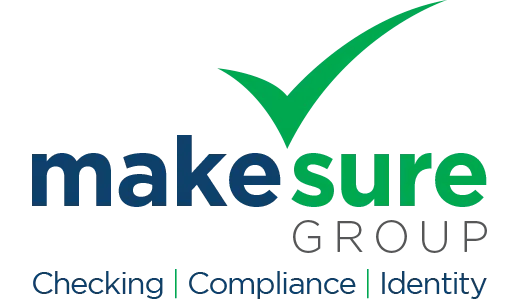The Recovery Mirage

The Cyber Sushi
(serving up the cold facts, with some phish bytes)
Welcome back! Here's what we are covering in this issue…
- Mirage of Recovery Scams: Illusory Hopes in the Financial Desert
- Behind the mask: A guide to trending scams
- CROC Spot: From ports to mines
- Coming up in CROC
- The hAPPY Score

Recovery Mirage
Like a mirage in the desert, pretending to offer hope to a thirsty traveller, funds recovery scams are affecting IDCARE clients, causing financial losses and emotional distress. During these scams, criminals exploit the vulnerable by executing a follow-up deception after their initial scam has unravelled.
The most common example is conducted in the realm of investment scams. Individuals who have suffered financial losses may find themselves contacted by criminals claiming to be able to assist in recovering their funds. To regain what they have lost in the initial investment scam, people may unwittingly fall into another trap, facing further monetary setbacks. Many recovery engagements result in further financial loss, without any funds being recovered or returned to you.
Another example of a recovery scam targets individuals who initially provided the criminals remote access to their device and are looking to get their money back. Unfortunately, if an individual has allowed remote access to their device, banks will not reimburse the funds lost in the scam.
In both of these examples, the criminal advises that for a small fee, or a series of fee payments, they will be able to assist in recovering the funds you lost and returning them to you. They typically claim to be “Funds Recovery Agents, Crypto Investigators, or Block Chain Experts/analyst". Some of these recovery scams impersonate legitimate organisation. This scam will likely require upfront payment, possibly a percentage of the total funds lost, which if paid can lead to subsequent payment requests under the guise of administrative costs, taxes or other associated fees.
IDCARE urge the public to remain vigilant after experiencing financial losses due to a scam. To shield yourself from funds recovery scams, it is essential to take the following precautions:
- Contact your bank: If you have been a victim of a scam involving financial loss, refer to the advice from your bank about the possibility of recovering any of your funds. If your bank is unable to recover your funds, it is highly unlikely that another organisation will.
- Be cautious: If you are contacted by anyone claiming to be from an official organisation advising they are able to recover some of your funds, be cautious. Do you due diligence and avoid sharing personal or financial information without confirming the authenticity of the request.
- Contact the police: Report any misuse of your identity or suspected fraudulent activity to the police and keep track of your police report number.
- Seek Professional Help: Contact IDCARE for support from one of our case managers. Report the scams to Scamwatch.
- Stay Informed: Be well-informed about common scams and the tactics used by fraudsters. Knowledge is a powerful tool in recognising and preventing scams.
- Educate Others: Share your experiences with friends and family to raise awareness and protect others from falling into similar traps. They can also support you as you recover emotionally, practically, and financially.
As technology evolves, so do the tactics of scammers. By staying vigilant, verifying information, and seeking professional guidance, individuals can better protect themselves from the devastating consequences of recovery scams.

Behind the Mask - a guide to trending scams
- The Facebook Marketplace rental Scams: During this current housing climate, IDCARE has noticed a rise in property rental scams targeting those searching for rentals. Scammers use outdated images posing as available properties on platforms like Facebook Marketplace. Criminals are impersonating agents or owners, tricking individuals into sharing personal information or making payments to secure the rental.
Our Tips: When handing over valuable identity documents, knowing who's on the other end receiving them is crucial. Try to conduct your house hunt through legitimate services. Do a Google search of the property and a reverse image search of the house to see if it pops up anywhere else. Need help with a reverse image search? Check out our how to video on it.
- Social media employment scams: Criminals are exploiting platforms, including WhatsApp, SEEK, Jora, LinkedIn, and Facebook, for employment scams. Victims receive referrals from fake agencies or apply to fraudulent job ads on social media sites. Often the hopeful employee is requested to share their personal information during the application process. We are also seeing an increase in employment scams that involve product purchases for commissions, where victims use their own funds to make the purchases. After being coerced into parting with large amounts of, victims are pressured to include other people. After significant payments, scammers vanish or may manipulate victims for more money.
Our Tips: It is crucial to do your research before accepting any job offer. Start by reading our fact sheet on employment scams, check out the hiring organisation and read the reviews. If they ask for upfront fees, it's best to avoid it. Also, be very cautious about providing identity credentials to someone you haven't met. It's always better to tell your prospective employer you will deliver these in person when you start the job.

The CROC Spot: From ports to mines
CROC's latest adventure kicked off in Gladstone, where the CROC team set up camp at the Rotary Markets, bringing our invaluable insights to the Gladstone locals and visitors alike. We were honoured to speak to various club members from across Australia, who were interested in bringing CROC to their towns.
Continuing our voyage through coal, cattle and cotton country, the CROC team reached Moranbah, where we engaged with local law enforcement, Barada Barna Aboriginal Corporation, library and council staff. We chatted about individual awareness and extended our support to guide organisations in providing scam awareness to their communities.
Following the trail of cotton sprinkling the highway, the CROC team made it to Charters Towers where we had some insightful conversations with locals from all walks of life. These extended from informative sessions at the local library to engaging in unexpected discussions with law enforcement, followed by staff meetings with Westpac and Prospect Neighbourhood Centre.
Throughout the trip, the team fielded various questions, ranging from unravelling data breaches to the nuances of spoofing along with demystifying password management systems and two-step verification. We also listened to participants share their experiences with scams and how they have affected their families and loved ones.
The mission of CROC is to illuminate the digital path, enabling communities to make informed decisions and ensuring that the online world remains a safer space for all. With heartfelt anticipation of future collaborations, the CROC team looks forward to charting more trails towards a secure digital future.
Coming up in CROC
Over next couple of months, CROC will be focused on Queensland before heading to New South Wales in November. See our website for more details on specific events. Want to bring CROC to your town? Get in touch via the form on our website.


The hAPPy score
Instagram or Insta-Scam?
Snap! Instagram is a social media platform that is all about capturing the everyday and exciting times in life to share with others. However, is it capturing parts of you that should stay hidden?
The legal spiel
How much ease in the legalese (one star means it's complicated)
Instagram's terms and policies are certainly not capturing any of life's highlights. It comprises 7 separate documents and at least an entire workday worth of time to read. However, their privacy policy gives a snapshot of how the app collects, uses and shares your information. All documents are also easily accessible and readable, which is a like from us.
Pervability
How much they’re looking at you (one star meaning a lot)
The lights are flashing, and they are all focused… on YOU!
Instagram captures a lot of information about you. The content you create, messages, interactions with posts and ads, transactions and credit card information, friends' phone numbers and email addresses, location-related information and your demographics are just a few of the scoops Instagram will collect about you. Like when paparazzi take photos of celebrities, Instagram has a license to all content you post, allowing them to use and distribute your content as they like. Despite this, you can limit the information you provide and share to the app or delete your account to erase all content and end your license with them. Like other social media apps, there are security measures in place to protect your information. Still, the content may persist for a time, and the shared copies will still be visible to the users who shared them. Additionally, Instagram also claims to not be "responsible or liable for any lost profits, revenues, information or data, or consequential, special, indirect, exemplary, punitive or incidental damages arising out of or related to these Terms."
The Scamometer
How easy is your account to hack? (One is super easy, five is Fort Knox)
With more than 2 billion people putting their face in front of the camera for Instagram, the app has also attracted a following of scammers. Floating around the app are phishing scams, money-flipping scams, crypto mining scams, fake job scams and romance scams, all aiming to trick users into sending them money, sharing personal information or clicking on malicious links. However, keeping your account private, enabling two-factor authentication and using common sense will be powerful tools to ensure your superstar account is kept from being taken over.
The two-left thumbs rating
Can grandma work out how to do it? (One star means "no way", five is "of course she can")
Instagram will hold Grandma's hand as she creates an account, but she is left entirely to her own devices. Luckily, Instagram has an easy-to-use interface, and Grandma can direct message and follow her family, friends and interests. With a simple click, Grandma can now catch up on the latest news stories, see recent posts about things that interest her (cats, baking, dirt bikes) and see what her grandchildren have been sharing (oh, spill the tea, Grandma).
Because everyone needs a… quick history lesson
Kevin Systrom and Mike Krieger worked together to build the foundations of Instagram. When the app launched for iOS on October 6, 2010, it became an overnight success and gained 25,000 users on the first day! Facebook purchased the app for around 1 billion USD in June 2012, and by December 2021, Instagram had over 2 billion active users.
The final countdown (dunna na... dunna na na na...)
Instagram is a photo and video social networking service that enables users to upload content to share through hashtags and geographical tagging. It has become an integral way for users to capture their stories from behind the camera lens and explore their artistic side. In some ways, Instagram serves as an autobiography of its user's lives. It lets people see the behind-the-scenes amidst the buzz of life.
Contact IDCARE
As always our free service for individuals is available on:
AU: 1800 595 160 or NZ: 0800 121 068 (there is no call charge)
Join the global list of organisations making a real difference in people’s lives by supporting our service.






















































Copyright © 2025, IDCARE. All Rights Reserved.
ABN 84 164 038 966








